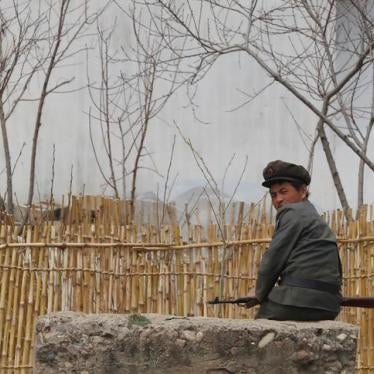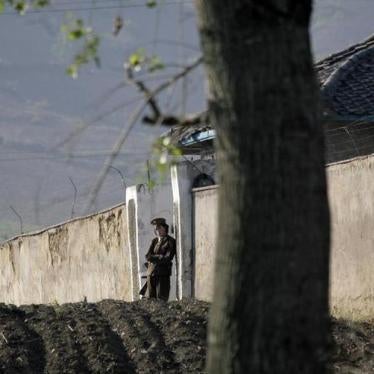- Progress and limitations on accountability issues in the Democratic People’s Republic of Korea seven years after the COI report, and the way forward
In January 2013, Navi Pillay, then-United Nations high commissioner for human rights, described North Korea as “one of the worst – but least understood and reported – human rights situations in the world” and called for a long overdue, in-depth, official UN investigation. The establishment of the Commission of Inquiry (COI) on the situation of human rights in the Democratic People’s Republic of Korea in March 2013 and the release of its 2014 report were the first beacons of hope for the countless victims of horrific rights violations by the North Korean government, which had hidden its widespread, systematic, and gross violations behind a wall of isolation and defiance.
Now, seven years after the 2014 COI report, all governments around the world acknowledge that North Korea is one of the most repressive and abusive countries in the world. Because of this increased pressure, the UN started paving a way for international accountability for those responsible for grave international crimes in North Korea. Based on the COI report recommendations, the Office of the High Commissioner for Human Rights (OHCHR) established a field-based presence in Seoul, created a panel of independent experts on accountability and transitional justice, and set up an accountability project with international criminal justice experts to develop plans and a strategy for the eventual prosecution of North Korean leaders and officials responsible for human rights crimes.
All these initiatives increased capacity for documentation of rights violations and centralization of evidence and information gathering, overviewed existing material and recognized documentation gaps, and provided new avenues for civil society groups working on North Korean human rights to engage with the different UN bodies and amplify the voice of the North Korean victims they represent. However, the OHCHR Seoul office had difficulties developing relations and getting access to North Korean escapee groups and civil society groups that did not speak English. Also, recent projects by several civil society groups related to the impact of UN Security Council security sanctions in North Korea, forced labor, enslavement, and supply chains revealed the need for financial forensic accountability expertise at the OHCHR Seoul office.
Despite these advancements at the international level, the North Korean government continues to publicly deny all the findings of the COI, as well as the existence of political prison camps (kwanliso). It has also refused to acknowledge UN human rights resolutions regarding North Korea’s human rights or cooperate with the special rapporteur. Also, since the outbreak of the Covid-19 pandemic, North Korea has isolated itself internally more than ever. Severe and overbroad measures forced all diplomats and almost all aid workers to leave the country and prevented North Koreans to cross to or have contact with China because of intensified surveillance internally.
As next steps, we urge that the special rapporteur recommend that:
- The Human Rights Council, in its next resolution on North Korea, should extend the mandate of the extra staff on accountability for the Seoul office, which ends in March 2021. The council should also revise the Seoul office’s existing mandate to align it with existing independent investigative mechanisms for Myanmar and Syria, which would facilitate the sharing of best practices and expertise. As such, the mandate should be extended to “collect, consolidate, preserve, and analyze evidence of the most serious international crimes and violations of international law and to prepare files in order to facilitate and expedite fair and independent criminal proceedings, in accordance with international law standards, in national, regional or international courts or tribunals that have or may in the future have jurisdiction over these crimes, in accordance with international law.”
- The next resolution by the Human Rights Council should also add an expert on financial forensics, and a Korean-speaking outreach officer to more effectively engage with civil society.
- The OHCHR Seoul office should analyse South Korean criminal law to identify opportunities and possible limitations, with the aim of devising a strategy to prosecute crimes committed in North Korea in future accountability processes.
- The UN and governments around the world should mobilize and find new leading governments willing to push for and support the accountability agenda on North Korea.
- Re-energizing international pressure on North Korea
We are concerned that some governments – notably the United States and South Korea – have abandoned their previous rights-based approach to dealing with North Korea, focusing instead almost exclusively on engagement and weapons proliferation issues. This is the wrong approach. Weapons counter-proliferation efforts and human rights are inextricably linked, as the astronomical cost of North Korea’s nuclear weapons program contributes to crushing poverty in one of the world’s poorest countries. Human rights need to be integrated in any negotiations with North Korea to reach lasting, sustainable peace on the peninsula.
We strongly support the special rapporteur’s two-track approach of accountability and engagement with North Korea, which he highlighted in his October report to the UN General Assembly. We urge the special rapporteur to include in his report a call to states to mainstream human rights in all their engagements with North Korea.








